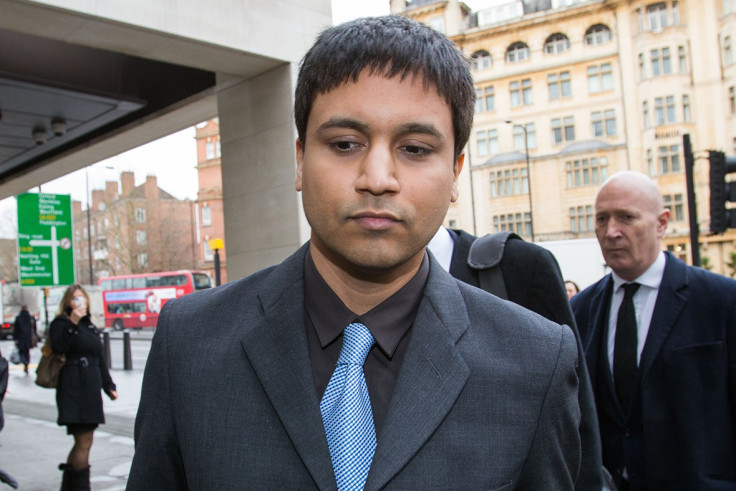London 'flash crash' trader faces up to 30 years in US jail after admitting to spoofing
Navinder Singh Sarao, who operated from parents' UK home, also agreed to pay US government $12.8m.

A trader who operated from his parents' home in London faces up to 30 years in jail in the US, after pleading guilty to wire fraud and spoofing that helped trigger a Wall Street "flash crash" in 2010.
Navinder Singh Sarao from Hounslow, who has severe Aspergers, also agreed in a plea deal to pay the US government $12.8m (£10.3m), which prosecutors said was the amount he had earned from his illegal trading.
He is the second person convicted of manipulating the commodities markets by placing orders that he never intended to fulfil.
Sarao, who traded futures on the Chicago Mercantile Exchange, is accused of manipulating the market by "spoofing" over a five year period.
He is also accused of contributing to market instability that had led to a brief 1,000 point-drop on the Dow Jones index in New York, BBC reports.
The 6 May 2010 market crash erased nearly $1tn (£806m), the BBC added. He is accused of spoofing , which involves placing large orders before cancelling or changing them, allowing traders to buy or sell at a profit.
In addition, Sarao has also agreed to pay $25.7m to the Commodity Futures Trading Commission (CFTC) to settle a 2015 civil suit. The settlement, which has to be approved by a judge, will also ban Sarao from trading derivatives, Bloomberg reports.
Sarao will be released on a $750,000 bail after his parents and brother offered their homes to secure his release.
He will be permitted to return to the UK pending sentencing, US judge Virigina Kendall ruled. The judge called Sarao's father in open court to confirm that they understood the terms of the agreement.
The trader, dubbed the Hound of Hounslow, lost his bid to fight extradition to the US to stand trial in October of this year and was facing 22 charges, which carry sentences totalling a maximum of 380 years. Sarao was extradited to the US earlier this week.
At the US court hearing, he was attired in an orange prison jumpsuit and had his ankles chained. His lawyer Roger Burlingame told the court that although Sarao had severe Aspergers, he had not been treated for it.
Burlingame also said the trader had "very limited functionality" and lacked social skills. However, he had extraordinary abilities and pattern recognition.
Trader Michael Coscia was the first person to be convicted of spoofing and commodities fraud in 2015 in Chicago after the 2010 Dodd-Franck Act made it illegal.
The CFTC reached a settlement in October after accusing Igor Oystacher and his 3Red Trading LLC of spoofing, reports Bl
© Copyright IBTimes 2025. All rights reserved.






















